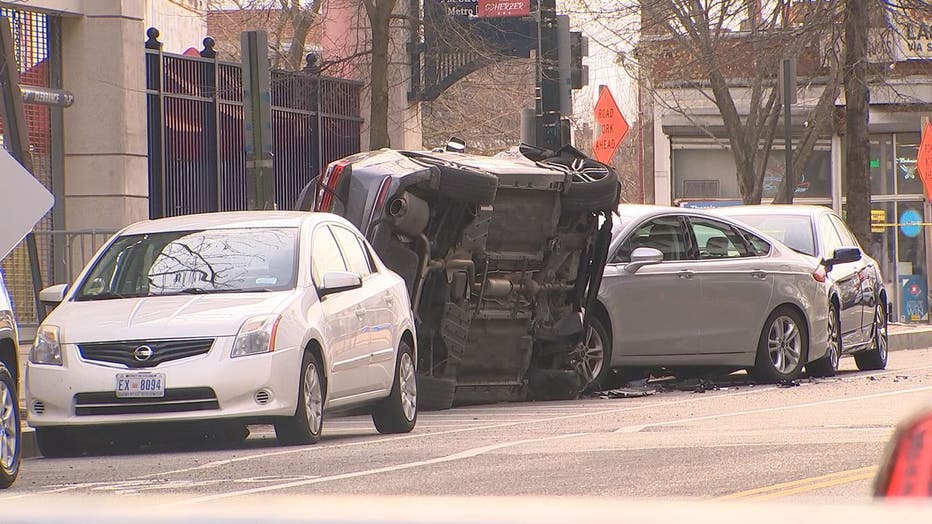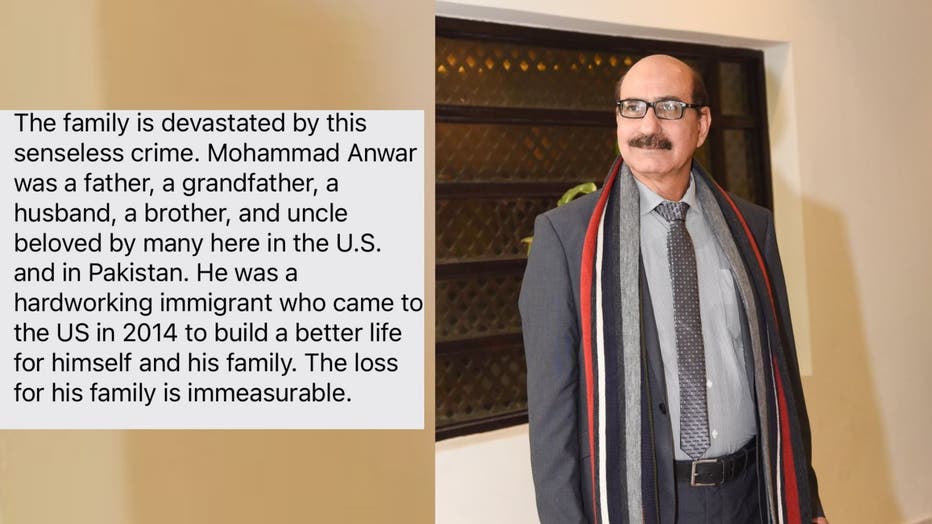Analysis of 'fight or flight' response and mindset of teen girls accused in deadly DC carjacking

Analysis of ‘fight or flight’ response to extreme situations like deadly DC carjacking
George Mason Associate Professor of Psychology and forensic psychologist, Dr. Justin Ramsdell, joined us to take a closer look at the ‘fight or flight’ response to extreme situations and to discuss why fighting your natural instinct may not be easy.
WASHINGTON - The two teenage girls charged with the death and carjacking of an Uber Eats driver will appear in family court Wednesday. The attack happened last Tuesday afternoon near Nationals Park in Southeast D.C. when investigators say the suspects assaulted 66-year-old Mohammad Anwar with a taser while attempting to pull off the carjacking that resulted in the crash.
Download the FOX 5 DC News App for Local Breaking News and Weather
Graphic video shows the moment the girls allegedly carjacked Anwar before speeding away and crashing, leaving him for dead near the wreckage.
SHOCKING VIDEO SHOWS DEADLY DC UBER EATS CARJACKING BY TEEN GIRLS
FOX 5 spoke with George Mason Associate Professor of Psychology and forensic psychologist, Dr. Justin Ramsdell, to take a closer look at the mindset of those involved and at the 'fight or flight' response to extreme situations like this one.

"It is certainly shocking when you hear her, especially standing next to Mr. Anwar's body, saying 'My phone is in the car – I need to get my phone.' For me that was one of the most disturbing parts of the video," Ramsdell told FOX 5.
Ramsdell said he believes it is a symptom of the actual crime. "If you think about what these girls did -- now there are lots of different reasons, and I haven't spoken to the offenders, so I don't know exactly why they did that -- whether it is financial gain, social status, peer pressure, COVID-19 related issues, child abuse and trauma, there many reasons why someone commits a crime, but there is a lack of empathy involved."
DC POLICE CHIEF: CHARGING AS AN ADULT DOES NOT BRING BACK A LOVED ONE

"When you look at them saying 'My phone is in the car, I want my phone,' that is just a symptom of lack of empathy that was involved in the crime," Ramsdell continued. "Here is a girl who is so focused on herself and her needs that she is willing to say those things. That feels shocking. But it is really just an extension of what the carjacking was to start with."
"The entire basis for the juvenile justice system is rehabilitation. For example, juveniles aren't guilty, they are involved in crime," Ramsdell said. "We hope that there is a lot of development that is going to go on between 13 and 15 and 21."
Ramsdell said that many of the factors involved, especially in juvenile delinquency, involve parenting and said the pandemic has acted as an amplifier for those factors.
"If your family was particularly loving and donated money or time to other activities, then the pandemic increased those behaviors. If you are under socioeconomic stress, there was violence in the home, then the pandemic amplified those behaviors," Ramsdell said
"Getting these girls out of whatever situation they are in and into juvenile detention may be the best thing," he added. "I hope that there is a chance they could be rehabilitated and rejoin society, and that is the system's hope as well."
"There are several situations in which people will defend themselves. People who are not otherwise aggressive or violent - if there is a threat to themselves, if there is a threat to their possessions - then people have a tendency to react aggressively," Ramsdell said discussing the victim's response to the attack. "That is not a surprise that he sought to defend what he used to provide for his family. We shouldn't 'Monday Morning Quarterback' the decisions made in extreme situations."
Ramsdell said logical thought and rational thinking are one of the first casualties of the 'fight or flight' response. "Whether he fought or whether he just said, 'You can take the car and I'm going to back off,' both of those decisions are perfectly valid and understandable."
A GoFundMe has been set up to help the family with funeral expenses.

